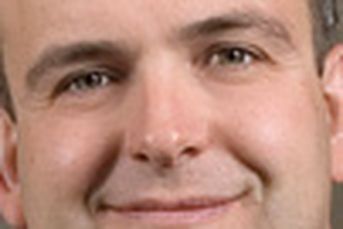Bridging the gap
The credibility gap that has opened between large Wall Street banks and brokers, and their wealthiest clients, has created a growing opportunity for independent RIA firms.
The credibility gap that has opened between large Wall Street banks and brokers, and their wealthiest clients, has created a growing opportunity for independent RIA firms.
“Large, sophisticated families are questioning whether these institutions can continue to be trusted, and it’s driving them to us,” said Michael Zeuner, senior executive partner at GenSpring Family Offices LLC. “They’ll still work with those traditional advisers, but they need someone like us to oversee them.”
GenSpring is the nation’s biggest fee-only registered investment adviser in terms of assets under -manage- ment, according to InvestmentNews‘ most recent rankings, which were compiled by RIA Database from Form ADV regulatory filings as of March 31.
GenSpring, a multifamily-office adviser, had $10.93 billion in discretionary assets and $16.93 billion in total assets in more than 5,000 accounts. The number of families served grew to more than 725, from around 700 a year earlier, and its em-ployee count increased by almost 5% to about 350 people in the first three months of 2010, Mr. Zeuner said.
The firm, founded in 1989 and majority-owned by SunTrust Banks Inc., generates much of its new business these days from people whose complex relations with other financial institutions need sorting out, he said. That’s supplementing the firm’s traditional source of new business — families with a sudden influx of cash from sale of a business or other liquidity event who need help with investments, tax advice and family governance issues.
Rob Francais, chief executive of Aspiriant LLC, has also noticed that traditional Wall Street firms are on weaker competitive footing these days.
“Prospects we’ve met with in the last 18 months looking for a wealth manager solution are not interviewing the big banks and bulge-bracket firms,” he said. “That’s unusual; it’s a big change.”
Aspiriant is the 11th-largest RIA, with more than $2.9 billion in discretionary assets and $3.96 billion in total, according to InvestmentNews‘ rankings. The number of its discretionary accounts increased 21% to 2,587 and total accounts were up 19% to 2,956 since December 2008.
Executives of both firms credit their growth to an increased awareness by wealthy investors of differences between fee-only and product-based providers, and to a better understanding of how fiduciary standard of care requirements differ from a broker’s suitability standard.
“Much of our new business comes from people who were with a big financial services firm that helped take them public or had another corporate relationship but now want independence, objectivity and transparency,” said Mr. Francais. “Perhaps the Goldman situation has highlighted some of the conflicts potential in those environments.”
“Families are realizing there’s a big information gap between the traditional firms and themselves” with respect to disclosure, said Mr. Zeuner, the former head of global wealth management solutions at JPMorgan Chase & Co.’s private-banking division.
To be sure, banks and brokers still advise on the bulk of assets for the wealthy and have been adapting to the crisis of confidence that affected investors through the downturn.
Robert McCann, chief ex-ecutive of UBS AG’s wealth management division in the U.S., said this month that he’s fully aware of a new demand from clients for financial planning and for close collaboration on investment advice.
“They don’t want us talking to them about products,” he said.
But as long as traditional firms make money from the fund companies, money managers and corporations whose products and services they sell, RIAs will have a competitive edge in serving wealthy individuals and their families, according to the RIA executives.
“It’s so difficult for the traditional providers,” Mr. Zeuner said. “They’d have to change their business model.”
RIAs, to be sure, have had to adjust their own client-management behavior to deal with the market cataclysms, global risk issues and uncertainties of the last two years.
“We’ve learned that perhaps we got too far into the intellectual aspects and away from the emotional aspects of managing wealth,” Mr. Francais said. “People learned a lot about themselves during the downturn, and as they come out of the ashes, they need to discuss long-term solutions that better match their wealth needs.”
According to RIA Database, the top 50 fee-only advisers made rapid progress in the past year in expanding their businesses. Total accounts soared by 84% from a year earlier to an average of 3,708 per firm, from just over 2,000. Assets in the ac-counts were up an average of just 17%, implying that investment re-turns slowed and that many top firms may be reaching down to smaller accounts.
And while the number of ac-counts soared, those designated as purely discretionary fell by an average of 2.7% among the top 50. “That may reflect clients’ wanting more control,” said Julie Cooling, president of RIA Database.
Several RIA executives said that aside from firms that focus on asset management, RIAs are largely indifferent to the rise and fall of discretionary versus total assets since fees aren’t linked to control of client investments.
E-mail Jed Horowitz at [email protected].
Learn more about reprints and licensing for this article.




